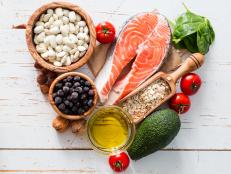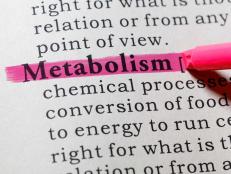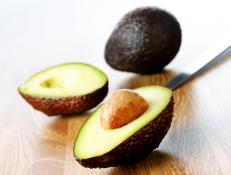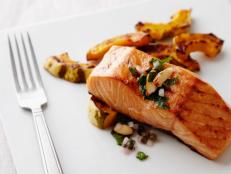10 Red Flags When You’re Considering a Diet Plan
If you’re feeling like you must start a new diet, you’ll want to make sure it doesn't contain any of these red flags.
Related To:
Photo By: Getty Images
Photo By: Getty Images
Photo By: Getty Images
Photo By: Getty Images
Photo By: Getty Images
Photo By: Getty Images
Photo By: Getty Images
Photo By: Getty Images
Photo By: Getty Images
Photo By: Getty Images
Photo By: Getty Images
Diet Red Flags
It is easy to get duped into believing a diet can revolutionize your life and melt away unwanted pounds. While science suggests that diets aren't always a long-term solution to weight loss, some are most certainly better than others. Here are some surefire ways to sniff out a bad — and maybe even dangerous — diet.
Unreasonably Fast Weight Loss
Losing 10 pounds in two days may sound great, but it's in no way smart or safe. If a program promises rapid weight loss, its strategies are likely dangerous. Crash diets almost always promote muscle loss, which isn't what you’re going for.
Supplements for Sale
Programs that require pricey supplements are worth investigating further. Many popular weight loss programs are nothing more than pyramid schemes promising good health for profit. Since dietary supplements are loosely regulated, they can be contaminated or improperly dosed, so always do your homework first.
Eliminating Food Groups
Unless you have a true food allergy or other diagnosed medical condition, there is nothing healthy about banishing entire food groups from your diet. Saying "so long" to things like grains, legumes or dairy (or all three!) dramatically increases your risk of becoming deficient in important nutrients.
Celeb "Experts"
Another example of, "If it looks too good to be true, it probably is." The cold, hard truth is many celebrities are very well-compensated to embellish. Even if they do have personal experience with a diet, does that mean it is a good fit for everyone else? Probably not!
Paid Subscriptions
Branded books and websites are common ways to explore a diet, but a new wave of programs ask for money to just unlock how the plan works. It shouldn't be that hard — or that costly — to eat well. A better investment would be a tailored shopping list and an appointment with a registered dietitian.
Social Media Prowess
Followers don't mean facts. Check the credentials of those social media mavens before assuming they have all the answers to your nutrition and exercise woes. Many disseminate incorrect information.
Super Low Calorie Recos
Less isn't more when it comes to food. Slashing calories too low can interfere with sleep, hormone levels, digestion and promote muscle loss. Starvation is not a diet and anything below 1,200 to 1,500 calories per day is way too low — especially for those who exercise regularly.
Lots of "Rules”
Diets can be appealing because they provide structure, but they often flood your brain with a complicated list do's and don’ts instead of actually teaching you anything about maintaining a healthy lifestyle.
3 Steps to Ditch Diet Rules and Feel Healthier
On-and-Off Mentality
Most diet plans cycle through arduous "phases" and ultimately lead right back to where you started. Instead of going on and off a diet, set small, attainable goals and work towards making permanent healthy changes to your food and exercise routine.
No Exercise Recommended
Some people don’t want to exercise, and some plans give you permission to go without. Losing weight healthfully is all about a healthy lifestyle, which does include regular physical activity. Find out how much exercise you need each day.
How Much Exercise Do You Really Need Per Day?


































